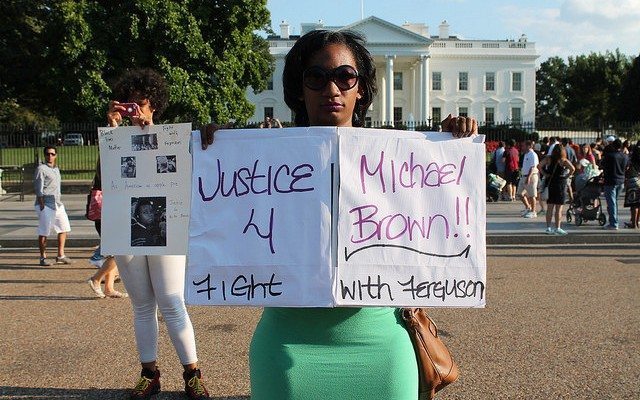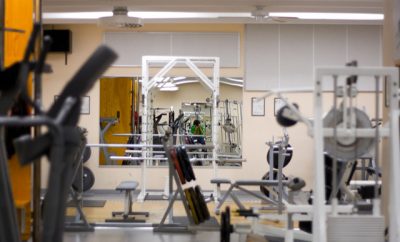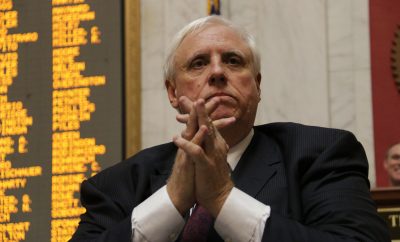 Image courtesy of [Elvert Barnes via Flickr]
Image courtesy of [Elvert Barnes via Flickr]
Blogs
We Should All be Upset About What’s Going on in Ferguson: Here’s Why
Before this week, I had never heard of Ferguson, Missouri. It’s a relatively small city–it has a population of about 21,000. But after the events of the last few nights, it’s pretty much the only thing anyone can talk about. It all started when a young black man named Michael Brown was shot and killed by a police officer. Apparently the officer had started shooting at them for some unknown reason, the two young men had run in panic, and then while trying to explain their status to the cop, Brown was shot. According to Dorian Johnson, a friend of Brown who was with him during the shooting, Brown tried to notify the officer that he was unarmed just before he was shot. Johnson claims he never once heard the officer tell them to stop, freeze, or anything of the sort. Bystanders corroborated Johnson’s claims, saying that Brown had his hands up, in a form of surrender, when he was shot.
The people of Ferguson are fed up, and they want answers. There’s a lot going on, but here are the top three things you need to know about what’s happening in Ferguson, and why they should be upsetting all of us.
Police Militarization
The issue of police militarization is one that’s kind of flown under the radar, but it’s time we start talking about it. If you’re interested in the topic, we did an in-depth look in two parts: here and here. Here are the spark notes though–the 1997 National Defense Authorization Act included a program called “1033” which authorized the donation of extra military equipment to local police departments. The argument is that the police need these weapons because the citizens that they are supposed to deal with have access to increasingly more dangerous arms. Police are being trained and armed like soldiers to deal with their own citizens. Among the police departments enrolled in this program is the Ferguson Police Department. There’s a line between providing better technology to our officers, and creating military culture within our local police forces. The Ferguson police just showed us how shaky that line is.
Race Relations in Ferguson
Michael Brown was a young black man. At the risk of oversimplifying a very, very complicated issue, there is a storied history of race relations in Ferguson. Ferguson is 65 percent African-American, but the police force of 53 contains only three black officers. Elijah Anderson of the Washington Post points out that this phenomenon is by no means uncommon:
Ferguson’s story isn’t uncommon in the United States. Authorities often see fit to heavily police towns with growing black and poor populations, to surveil them, and occasionally to harass them in the name of a “broken windows theory” of policing, banking on such methods to control crime.
Anderson explains how this theory goes on to breed resentment, and mistrust between communities and the police officers that are supposed to protect them. He cites a report from the Center for Constitutional Rights that found that,
Blacks and Latinos are treated more harshly than whites, being more likely to be arrested instead of given a summons when compared to white people accused of the same crimes, and are also more likely to have force used against them by police.
The issue of race and policing deserves a lot more than the sparse few hundred words I’m able to write in this article. My point though is this: this isn’t just a problem in one small town in Missouri–this is a systemic issue that can be seen all around the country. Ferguson may be the tip of the iceberg, but it’s a huge iceberg that we need to start thawing. Giving the police stronger firepower, using broken windows policing, and shooting young unarmed men cannot be the answer anymore, and Ferguson is proving that.
First Amendment Rights
There have been multiple incredibly concerning First Amendment rights issues happening in Ferguson since the protests began. At one point the airspace above Ferguson was restricted–while authorities claimed that it was to protect the protesters and police; journalists wondered if it was to prevent aerial shots of the protests. At one point yesterday, an Al-Jazeera America team was tear-gassed, and a St. Louis Alderman was arrested.
Things really came to a head last night though–two rather prominent journalists were arrested for being in a McDonalds. Wesley Lowery of the Washington Post, and Ryan Reilly of the Huffington Post were in a McDonalds charging their phones, when they were approached and told to move along. They had been taking pictures of the cops who had walked into the McDonalds, a pretty normal journalistic move. They were packing up their belongings, but apparently not quickly enough, because they were arrested, and assaulted. The police refused to tell them why they were arrested, or give them any other information.
Here’s a disturbing video of Lowery’s arrest:
Video of my arrest: http://t.co/baiYPQGfc7/s/ZHkX
— Wesley Lowery (@WesleyLowery) August 14, 2014
Reilly after the fact pointed out:
I’m fine. But if this is the way these officers treat a white reporter working on a laptop who moved a little too slowly for their liking, I can’t imagine how horribly they treat others. And if anyone thinks that the militarization of our police force isn’t a huge issue in this country, I’ve got a story to tell you.
In some ways, the most horrifying part of the story wasn’t that Reilly and Lowery were arrested, it was the way that the police responded to the news that they had just arrested two reporters. Matt Pierce, an LA Times Reporter tweeted:
I just called Ferguson police chief to ask about @WesleyLowery and @ryanjreilly, told him what I knew. His response: "Oh, God."
— Matt Pearce (@mattdpearce) August 14, 2014
To clarify: The "oh, God" was delivered in a tone of shock.
— Matt Pearce (@mattdpearce) August 14, 2014
Ferguson chief tells me @WesleyLowery and @ryanjreilly's arresters were "probably somebody who didn't know better."
— Matt Pearce (@mattdpearce) August 14, 2014
That’s pretty disturbing. The police chief didn’t care that he arrested two innocent men. He cared that arrested two journalists. His statements indicate that had they just been two men sitting there charging their phones and working on their laptops, it would have been ok that they were detained and assaulted for no good reason. The police chief isn’t sorry that he arrested those men, he’s sorry that he got caught.
I believe strongly in freedom of the press–so what happens in Ferguson worries me deeply. Because here’s the thing, the other two topics I wrote about above–police militarization and race relations–are so much more important than the fact that reporters got arrested. The national discussion should focus on those topics until we’re blue and the face and we hopefully have some sort of solution. But when journalists aren’t allowed to cover what’s happening, and we have to have side discussions about the freedoms that so many of us take for granted, we get derailed. And that’s a big problem.
This is a perfect storm of police militarization, race relations coming to a head, and freedoms being revoked willy-nilly. I’m not going to pretend that I’m on the ground there, or that I have the full story, or even any of the answers, but as an observer I’m outraged. And readers, I hope you are too. Because unless we all stand together to say what is happening in Ferguson is plain wrong, we’re headed down a dangerous path.








Comments